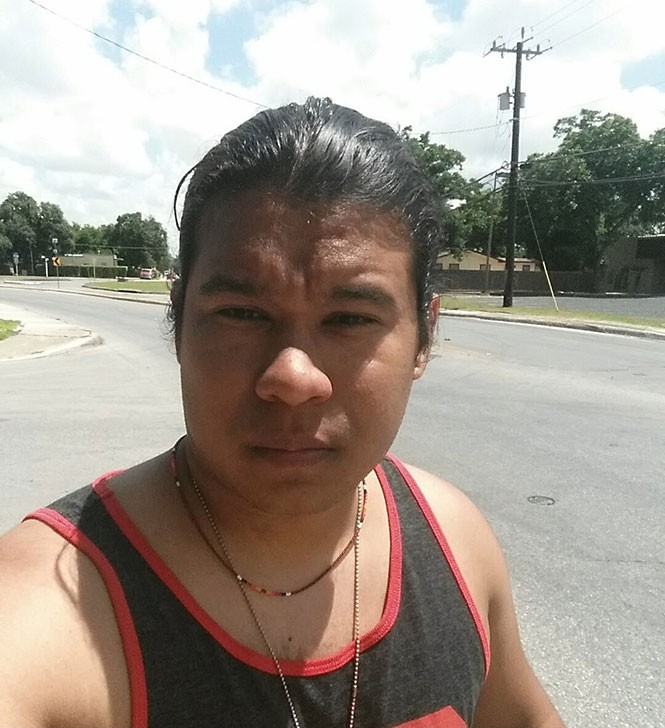Q&A with James Hernandez
Peaceful Advocates for Native Dialogue and Organizing Support
By Andrea Harvey @andrearharveyMany have heard the term "cultural appropriation" in the context of Halloween costumes, but aren't aware of the many facets and their repercussions for those on the receiving end. That's why local nonprofit PANDOS, (Peaceful Advocates for Native Dialogue and Organizing Support, pandos.org) hosts a panel discussion on March 27. Panelist James Hernandez—a Native American who serves as education chair for the PANDOS board—has studied cultural appropriation, particularly relating to Natives, as a grad student in the Education, Culture and Society program in the University of Utah's School of Education. As a member of the Tehuan Band of Mission Indians of San Antonio and with a B.A. in psychology, it's safe to say he knows his stuff.
What is cultural appropriation?
It's when someone, or even a group of people, learn something—like a skill, technique or style—and use it for profit ... or in a way that is demeaning to the original practice. So appropriation also serves to limit people in a specific time or promote stereotypes that serve to degrade the culture being emulated.
Like when someone wears a headdress as a Halloween costume?
That's a big one that people use often, and it's not taken as seriously as it should, but it still has to be said. ... It's being used for profit and it's used for fashion, or used in a way that it was not originally intended. Its original and current intent is for people with high honor in the American-Indian community. ... Whenever I think of that one, I think of the military. It would be very disrespectful for someone to wear a medal they did not earn. Or maybe even a Purple Heart. That [comparison] usually gets to people.
What are some other examples?
'Spiritual practices' or 'spiritual getaways.' They try to emulate American-Indians' spiritual practices, but they're people that are outside traditional or indigenous communities. They charge a large sum of money to participate, when usually those ceremonies are not something you charge for; they're something that's given. ... It degrades the practice of the originating people. For instance, outsiders who don't know about the practice may view it as more legitimate because there is a fee, while if an actual spiritual leader from that community did it for free, an outsider might see that as something that's not as valuable.
What are the repercussions?
For me, I look specifically at young people. When young people see their culture—and I'm thinking specifically about American-Indian people, but it could be, you know, with any other culture—being made fun of or devalued, such as through appropriation, they eventually internalize negative images and refuse to associate with what's part of their identity ... especially people who belong to cultures that have a history of trauma. ... It serves to kind of erase history and recreate its own. So when people who are of that culture see it, they're saying, 'They're me; I don't actually recognize that, so is the problem with me or with them?' And when you're a child, it's very confusing to see all these different misrepresentations of your culture.
Have the awareness and rhetoric shown any signs of progression?
Within this last century, people have written about it, but it really has not been taken seriously. Even now, the only reason I know what I know about it is because of specialized classes. That's another issue—the idea that you have to specialize in American-Indian studies to learn these things. ... There are also those that understand that appropriation is dangerous, and for those people, this discussion will allow them to leave with at least a vocabulary to speak about the effects of appropriation, and they'll have a better, well-rounded understanding of it.
It seems a lot of people are afraid to talk about this. Even when they want to be an ally, they'd rather just avoid the topic.
And I understand that, and that's why the other side of it is—it's OK to call someone out, but you also have to be supportive. Many people love to be the social-justice warrior that says, 'You're doing this wrong, you're doing this wrong, you're doing this wrong.' But they don't want to be the one to say, 'You're doing this wrong, I understand where you're coming from and let's figure out how we can do it a different way.' That's exhausting. And that's why we can't do it all to everybody.
How does it affect outsiders' perception of the culture?
So if someone has no prior experience with a group of people, and their first exposure to that group is the appropriated identity, that initial experience becomes the landmark to which they base their following experiences on afterward. For example, people might not recognize an American-Indian person—and we see this all the time—if they are not wearing a feather headdress and if they don't have their face painted.
More by Andrea Harvey
-
'Hearts, Not Parts'
Orem entrepreneur's Genderbands raise money for female-to-male top surgery grant.
- Oct 4, 2017
-
'Nobody Owns You'
Rachel Jensen on educating and empowering survivors of intimate partner sexual violence through The Walk of No Shame.
- Sep 27, 2017
-
Barks and Brews
Humane Society of Utah's Jamie Usry says local beer and dog adoptions make the perfect pair.
- Aug 16, 2017
- More »





